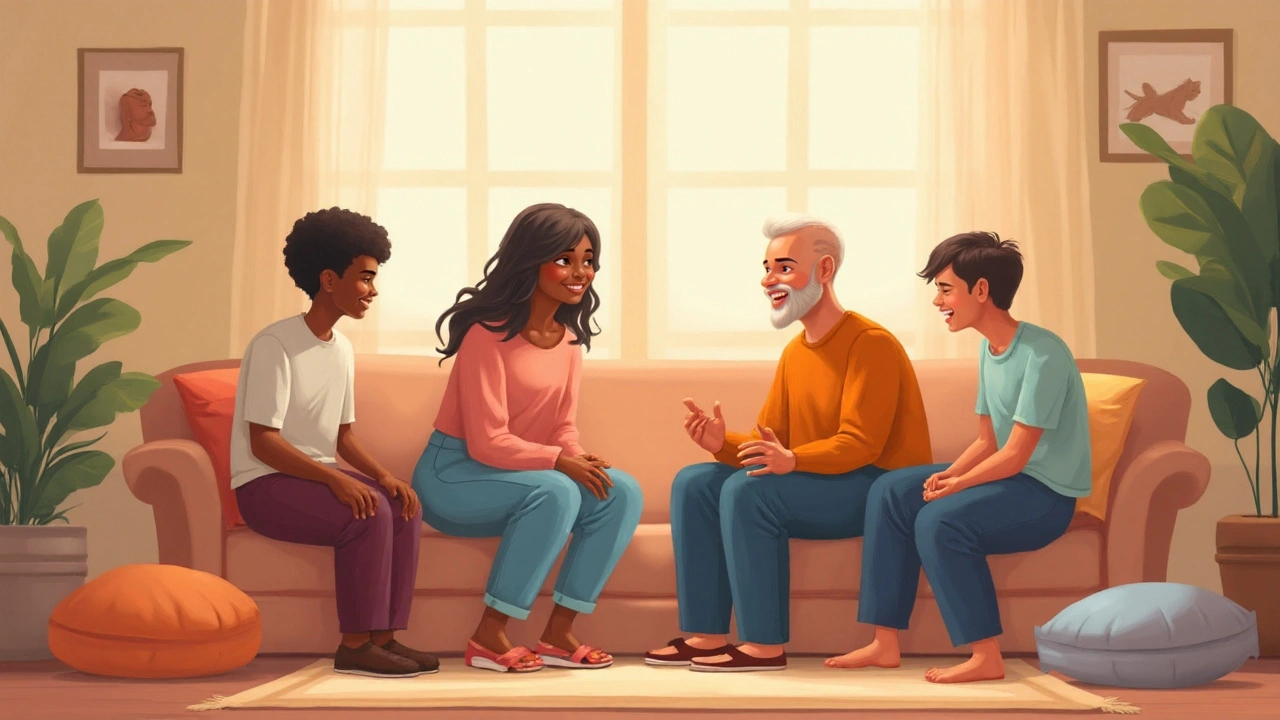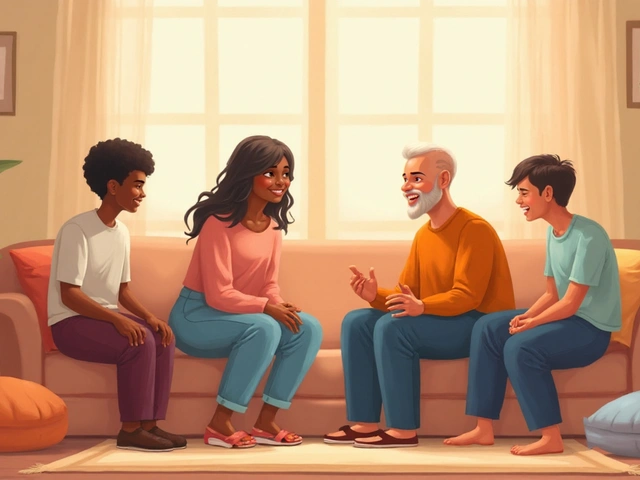Alopecia is a medical condition that causes partial or complete hair loss on the scalp or body, affecting roughly 6.8million people in the United States alone (CDC, 2023). While the physical signs are visible, the hidden psychological toll often goes unnoticed.
What Is Alopecia and Why It Matters
Alopecia comes in several forms. The most common is Alopecia Areata, an autoimmune attack that creates round bald patches. Totalis wipes the entire scalp, while Universalis removes hair everywhere, including eyebrows and lashes. Each type brings its own set of emotional challenges.
| Type | Typical Onset Age | Hair‑Loss Pattern | Psychological Impact Score* (0‑10) |
|---|---|---|---|
| Alopecia Areata | 15‑30 | Round patches | 6.2 |
| Alopecia Totalis | 20‑40 | Full scalp loss | 7.8 |
| Alopecia Universalis | 25‑45 | Whole‑body hair loss | 8.5 |
*Based on pooled scores from the 2022 International Alopecia Psychological Survey.
How Alopecia Touches Mental Health
Mental health is a state of emotional and psychological well‑being that influences how we think, feel, and act. The sudden change in appearance can trigger a cascade of mental‑health concerns.
- Self‑esteem often drops as individuals feel less attractive or fear judgment.
- Depression affects up to 30% of people with severe alopecia, manifesting as persistent sadness, loss of interest, and fatigue.
- Anxiety frequently emerges, especially social anxiety, where fear of staring eyes leads to avoidance of public spaces.
These conditions often intertwine. A teenager who loses a full head of hair may experience a sharp dip in self‑esteem, which then spirals into anxiety about school presentations and eventually depressive episodes.
Social Stigma and Identity
Hair is a cultural symbol of health, youth, and gender identity. When alopecia strips that symbol away, society’s subtle biases can feel like outright discrimination. Even well‑meaning comments-"You look great with a hat!"-can reinforce feelings of otherness.
Research in 2024 showed that 42% of respondents reported being stared at in public, and 18% felt pressured to cover their heads at work. Such experiences erode confidence and can worsen the aforementioned mental‑health symptoms.
Effective Coping Strategies
Coping strategies are intentional actions or mindset shifts that mitigate stress and improve emotional resilience. Below are approaches backed by clinical studies.
- Mind‑body techniques: Guided meditation, yoga, and deep‑breathing reduce cortisol levels, lowering anxiety scores by an average of 12% (Harvard Health, 2023).
- Cognitive‑behavioral therapy (CBT): Targeting negative self‑talk helps reframe hair loss as a medical condition rather than a personal flaw. CBT reduced depressive symptoms in 68% of alopecia patients in a 2022 trial.
- Creative expression: Art, journaling, or music allows feelings to surface safely. A pilot program at the University of Minnesota reported a 20% boost in self‑esteem after eight weeks of weekly art workshops.
- Physical activity: Regular exercise releases endorphins, improving mood and sleep-both crucial for hair‑follicle health.
- Professional grooming: Consulting a skilled hairstylist for wigs, extensions, or scalp tattoos can restore a sense of control over appearance.

Role of Healthcare Professionals
Managing alopecia’s mental impact requires a team approach.
- Dermatologists diagnose the type, prescribe topical or systemic treatments, and can refer patients to mental‑health specialists.
- Psychotherapists, especially those trained in health psychology, address the emotional fallout and teach coping skills.
- Primary‑care physicians monitor medication side‑effects that could affect mood, such as corticosteroids.
Open communication is key. When a dermatologist asks, "How are you feeling about the hair loss?" patients are more likely to disclose depression or anxiety, leading to timely referrals.
Building Support Networks
Support groups are organized communities where members share experiences, resources, and encouragement. Both in‑person meet‑ups and online forums play vital roles.
- Local chapters of the National Alopecia Areata Foundation (NAAF) host monthly gatherings, providing a safe space to discuss fears and successes.
- Social media groups on platforms like Reddit and Facebook boast thousands of active members, offering anonymity for those hesitant to join physical meetings.
- Peer‑mentoring programs pair newly diagnosed individuals with long‑term survivors who can model resilience.
Studies indicate that participants who engaged in at least one support‑group activity per month reported a 15% reduction in depressive symptoms over six months.
Practical Checklist for Managing Mental Well‑Being
- Schedule a mental‑health screening with your primary‑care doctor within three months of diagnosis.
- Identify at least one coping technique (e.g., meditation) and practice it daily for 10minutes.
- Join a local or online support group; attend the first meeting within two weeks.
- Create a ‘positive‑self‑talk’ script to counter negative thoughts about appearance.
- Set realistic health goals-such as a 30‑minute walk three times a week-to boost mood and overall health.
Following this checklist doesn’t guarantee instant relief, but it builds a sustainable framework for emotional recovery.
Looking Ahead: Research and Hope
Emerging therapies, like JAK inhibitors, not only aim to regrow hair but also show promising mood‑stabilizing side effects. Ongoing trials (2025) are measuring both hair‑regrowth rates and quality‑of‑life scores, hinting at a future where treating the scalp also heals the mind.
Until those breakthroughs become standard, the best defense remains a blend of medical care, mental‑health support, and community connection.

Frequently Asked Questions
Can alopecia trigger clinical depression?
Yes. Research shows that roughly one‑third of people with severe alopecia experience clinical depression, especially when hair loss is sudden and impacts daily life.
Is anxiety more common than depression in alopecia patients?
Anxiety tends to appear first, often as social anxiety about being stared at. Over time, unchecked anxiety can evolve into depression if coping resources are lacking.
Do wigs or scarves improve mental health?
Many patients report a boost in self‑esteem and reduced anxiety when they feel their appearance aligns with personal style. However, long‑term emotional recovery still requires therapy and support beyond cosmetic solutions.
How can I talk to my doctor about the emotional side of alopecia?
Prepare a brief list of symptoms (e.g., sleeping trouble, persistent sadness) and ask directly for a mental‑health referral. Mention any support groups you’ve joined; doctors appreciate proactive involvement.
Are there online communities for specific alopecia types?
Yes. Sub‑forums exist for alopecia areata, totalis, and universalis on platforms like Reddit, Facebook, and the NAAF website. Choosing a niche group can provide more targeted advice.




16 Comments
Write a comment